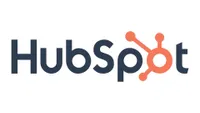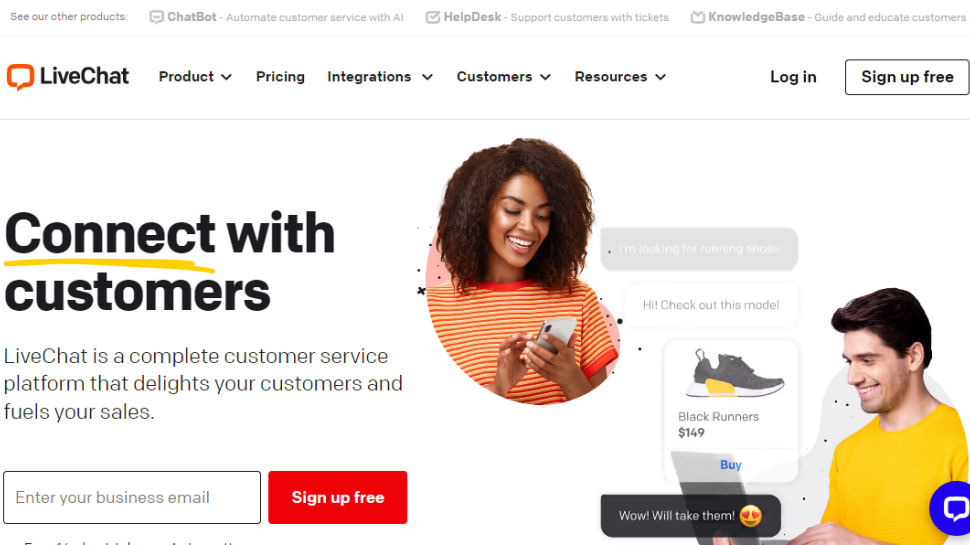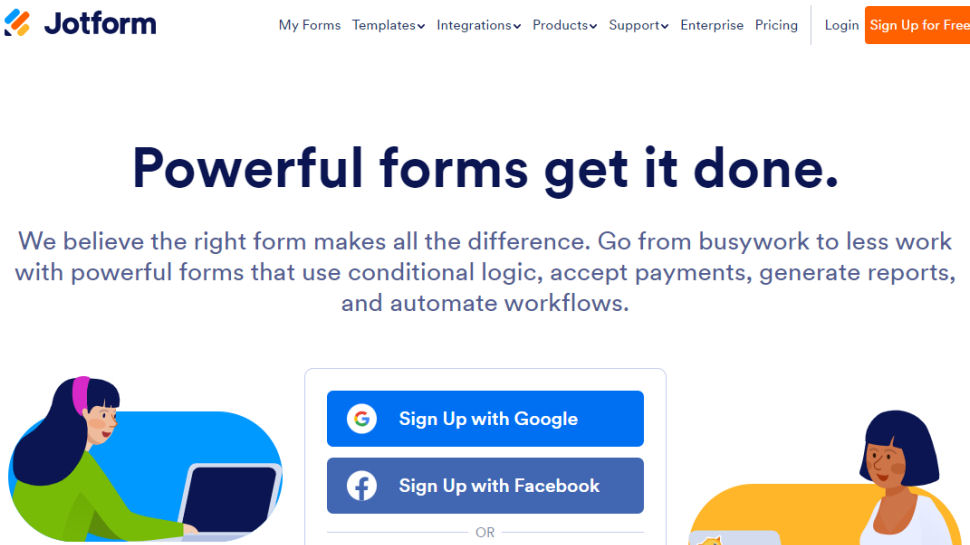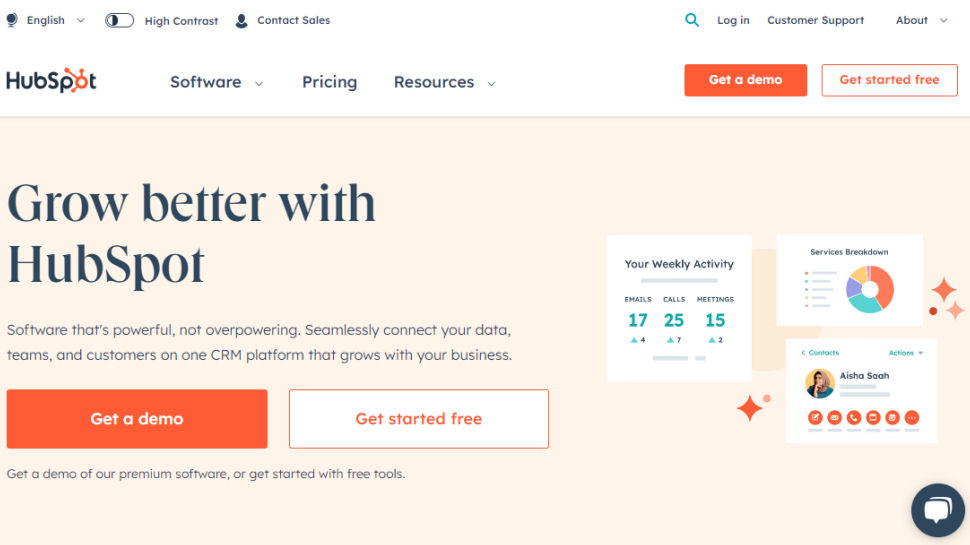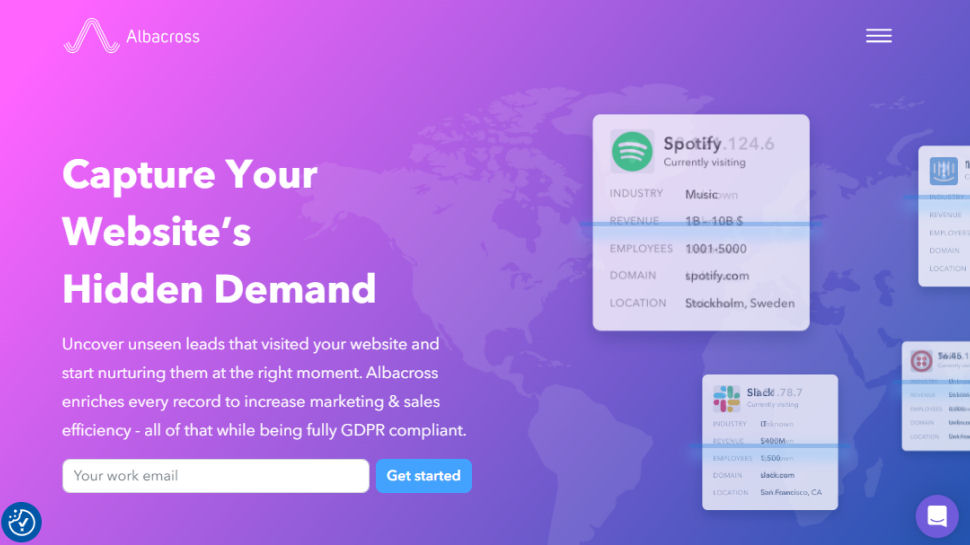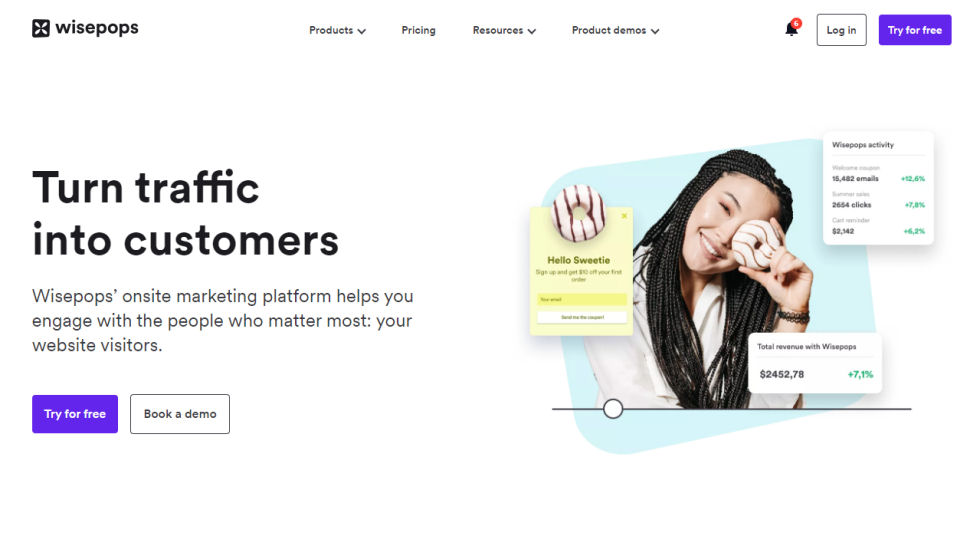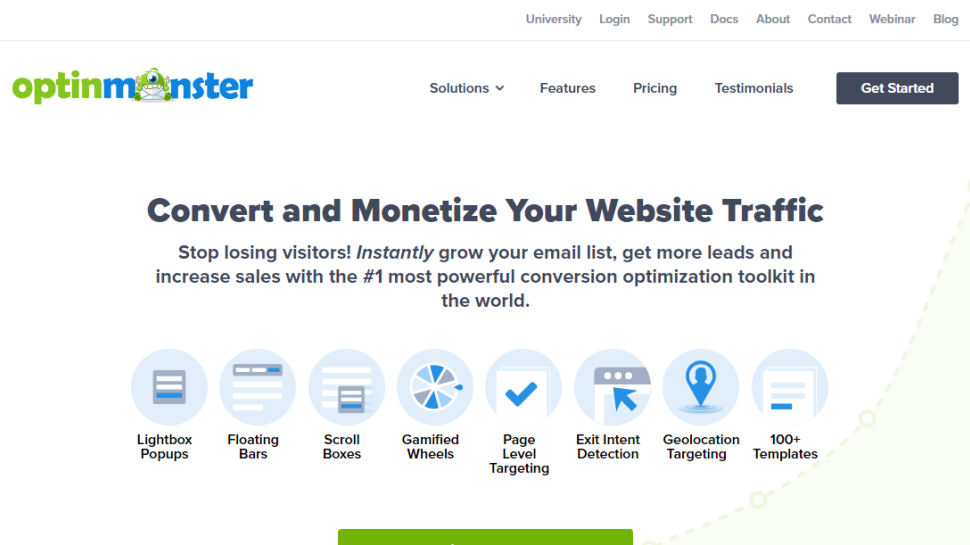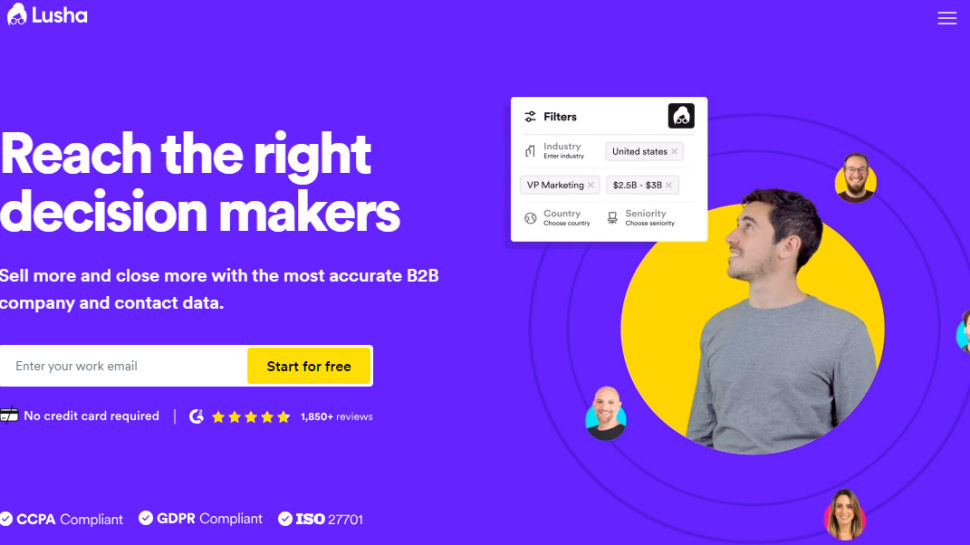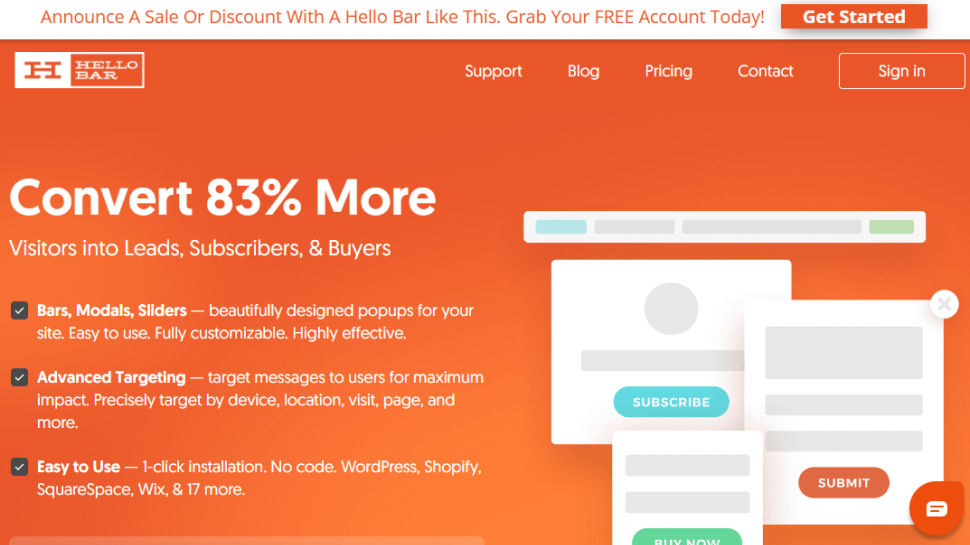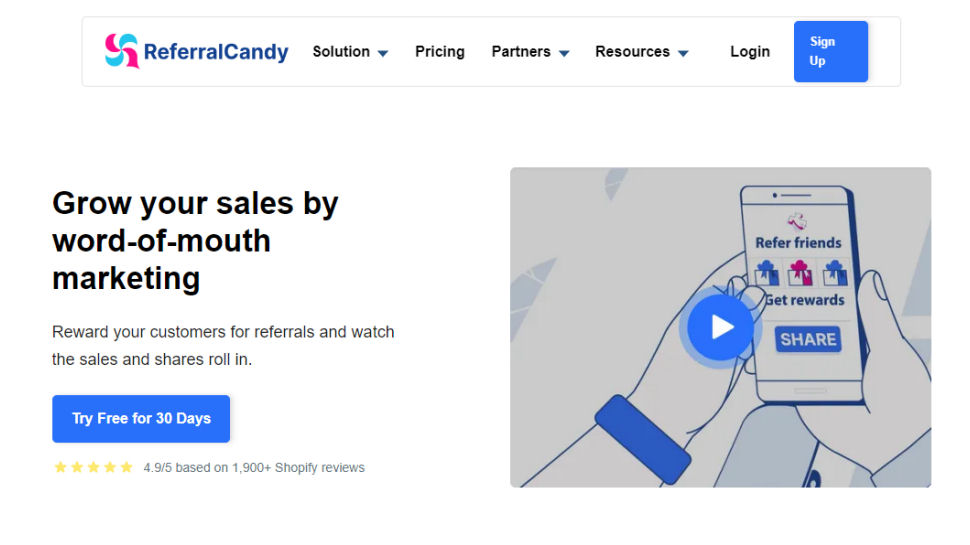Best lead generation tool of 2026
Increase sales using these lead tools

Sign up for breaking news, reviews, opinion, top tech deals, and more.
You are now subscribed
Your newsletter sign-up was successful
We list the best lead generation tools, to make it simple and easy for you integrate existing marketing or CRM software for better analytics and KPIs. to increase customer base and maximize sales.
Lead generation tools are essential for capturing the interest and contact information of your audience. Finding the right ones for your business can help it scale faster, make vital contacts and discover new opportunities.
You can do this by a number of methods, such as by customer tracking, by inviting customer feedback, and by exploring customer connections online. This can be done directly or indirectly, by targeting sales, marketing, or CRM software, or even all three.
The result is that lead generation tools aim to help increase sales by turning visitors into customers.
Whether you’re aiming to turn visitors into customers, gather insight from potential buyers of your products or services, or otherwise, the best lead generation tools can often also automate processes for you, making the whole process more efficient.
Additionally, it can help you streamline your customer strategy and focus on delivering what your customers need without having to resort to paid advertising just to get their attention.
In our list of best lead generation tools currently available, we've looked at everything from CRM integration and workflow features, to real-time lead analytics and cost.
You may also be interested in our featured best email marketing software.
HubSpot is designed to help you build a frictionless customer experience. It brings all communication channels - from email inboxes, live chat, forms, and Facebook messenger - together into one place and enriches client data with its CRM tool.
Preferred partner (What does this mean?)
The best lead generation tool of 2026 in full
Why you can trust TechRadar
Best lead generation tool overall
Reasons to buy
Reasons to avoid
Thanks to its ease of use and a great range of features, LiveChat is our choice for the best live chat software around.
With it, you can create a chat box to communicate with customers on your website. It’s possible to send files, links, calendars, and canned responses that answer common questions through this chat box. Another handy feature is the ability to send a live chat to another customer support representative, which is important for businesses with many different teams.
In terms of other live chat functions, you can see what customers are typing before they even send their message, assign contextual tags to each chat, or access previous chats using an archive. It’s also possible to receive chat notifications, ask customers to rate chats and complete short surveys, ask new visitors if they’d like to chat, tell customers about new announcements and products, and much more.
What’s more, LiveChat lets you organize all your communications (including emails, chats, SMS, apps, etc) in a user-friendly dashboard. It also sports integrations for more than 170 software platforms, including Facebook, Messenger, WordPress, Salesforce, Shopify, Dropbox, and many others.
Read our full LiveChat review.
Best lead generation tool for forms
Reasons to buy
Reasons to avoid
Ideal for businesses of all sizes, JotForm helps companies create survey forms without any knowledge of CSS, JavaScript or other programming languages – though if they do, there’s plenty of scope for diving into the code and tweaking designs.
Forms are highly customizable and can be set to show different content based on the user's location, and field types can be further customized to show properties as required, setting character limits and pre-populating fields.
Jotform offers a very attractive free plan that includes 5 forms, 100 submissions per month, and 10 payments per month. For individuals and small businesses, that might be all you need. The only real downside is that your surveys will come with Jotform branding rather than your own custom logo. There is a free trial available.
Read our full JotForm review.
Best all-round lead generation tool
Reasons to buy
Reasons to avoid
HubSpot is usually one of the first names on people’s lips when lead gen tools are mentioned. It’s a bit of a Swiss army knife, combining sales, marketing and customer relationship management all on a single platform.
Its many features allow you to create automation workflows, email campaigns, and manage social media accounts in addition to carrying out lead generation activity. It’s perfect for SMBs that are looking to scale and don’t want yet to dip their toes into enterprise CRM software and its associated challenges (and not to mention cost).
Its free plan provides a capable platform to manage and maintain new leads through a variety of HubSpot's complimentary CRM, marketing, sales, and customer service tools. However, it’s worth noting that the free plan comes with limited customer support, so you won’t have access to in-app chat or phone support
Read our full HubSpot review.
Best lead generation tool for monitoring
4. Albacross
Reasons to buy
Reasons to avoid
We’re big fans of Albacross, which is about identifying potential leads who are visiting your website in real-time and recognizing (before ultimately acting on) their navigation habits.
If you’re targeting your product or service at a particular demographic, for example, you can see if anybody belonging to it is browsing your homepage, specific channels or other pages before emailing them.
And by showing what kinds of companies and individuals are visiting your site, Albacross helps you tailor your messaging to better attract the leads you desire.
A slight drawback is that to receive automated reports you'll need to be a registered user (so you'll not be able to share with a wider team, for example) but the platform is really intuitive and comes with a wide array of filters and customization options, meaning users are able to really hone in on the leads you want to target.
Best lead generation tool for social media
5. Discover.ly
Reasons to buy
Reasons to avoid
Social media can be a powerful mine of information if used smartly and efficiently, but finding new leads on the likes of LinkedIn and Facebook can be a frustrating and time-consuming task.
Google Chrome add-on Discover.ly aims to change that by revealing more information about somebody and who they are connected to when you visit their profile on a social media network.
On LinkedIn, for example, visiting a person’s profile will bring up a pop-up window that shows who that person is connected to on LinkedIn, in addition to Facebook and Twitter.
It’s a simple yet ingenious way of quickly finding new leads without having to spend hours navigating your way around individual networks. Note that the tool will only scalp information you have access to and will not break any data privacy blocks.
Best lead generation tool for pop-ups
6. WisePops
Reasons to buy
Reasons to avoid
Website pop-ups have earned a bad rep over the years, but research shows that they’re incredibly useful for lead generation. Wisepops helps you create beautiful pop-ups using a drag-and-drop builder that gives you 60 templates to pick from.
It’s also possible to set different actions for when visitors first visit and then ultimately leave pages, click on links or hover over specific elements on your organization’s website.
Wisepops offers the ability to activate multiple campaigns at the same time, target visitors according to their location and browser, and you can even craft dedicated messages for new customers and returning ones.
The service also comes with some pedigree, Wisepops claim to be servicing over 2,000 brands in more than 50 countries, which they say notches up more than two billion personalized onsite messages each year for the likes of Decathlon, Heineken, and Jaguar.
Best lead generation tool for mobile
7. OptinMonster
Reasons to buy
Reasons to avoid
OptinMonster is a savvy lead generation software tool that makes it easy to capture, share and manage marketing leads. It provides high-converting mobile-friendly forms and uses behavior detection rules to find success.
OptinMonster integrates with most major email marketing and CRM platforms, and you can set advanced targeting rules for marketing campaigns. That can include anything from page-level targeting (running campaigns on different pages, targeted to page content) to OnSite Retargeting (creating special offers and promotions for returning visitors).
It’s also possible to target campaigns by location, activity or inactivity, and by device type. With its patented 'Exit-Intent' technology, it's also useful for attempting to change the minds of visitors who appear set to abandon your website, through effective use of pop-ups and scroll boxes.
Best lead generation tool for contacts
8. Lusha
Reasons to buy
Reasons to avoid
Effectively a database of B2B contacts, Lusha can be deployed by sales and marketing professionals to find leads, boost their campaigns and ultimately drive revenue. In short, it provides the ability to find information on people who are publicly listed on social media and elsewhere, without spending hours manually trawling pages.
It also offers a browser extension for Chrome that automatically scans the profile page you are visiting when on social networks like LinkedIn, Facebook, and Twitter to provide up-to-date contact information. Do note though that Discover.ly, also on our list of best lead generations tools, offers this for free.
With Lusha you can also create filters based on prospecting lists, and easily integrate it into your existing workflows without too much hassle.
Lusha offers a free trial, but for comprehensive features they have three plans to choose from, starting with the Pro package, costing $29 per user per month when billed annually.
Best lead generation tool for website messages
9. Hello Bar
Reasons to buy
Reasons to avoid
Starting out life as a notification bar, Hello Bar has evolved into a flexible marketing tool that lets you design messages for your website visitors. To get started, all you have to do is enter your website URL and you will be shown how to make display ads and install bar codes.
From there, you can set up email integrations, choose goals for your campaigns, install modal pop-ups, full-site takeovers, slide-ins and more. Additionally, it lets you set up simple announcements and direct website visitors to social media channels.
It's also good for creating A/B testing, though note you may need to use another tool like Zapier in order to integrate Hello Bar with popular CRM software like Hubspot.
Hello Bar has three plans to choose from with pricing starting at $29 per user per month, or there is a free basic option.
Best lead generation tool for discounts
10. ReferralCandy
Reasons to buy
Reasons to avoid
ReferralCandy is a great eCommerce tool for generating leads. As its name suggests, it’s centred around helping businesses generate leads and sales by offering their customers discounts for sending new customers their way.
It’s offered as a free 30-day trial which you can use to test out its features that include email campaigns and data-driven insights dashboards. ReferralCandy also integrates with a range of marketing stacks and platforms – from Shopify and WooCommerce to BigCommerce, Magento, Mailchimp and Google Analytics.
What's more, you can be up and running in no time with an easy and intuitive setup, though there is reassurance in the form of a robust and efficient customer support service should you need to ask any questions.
Best lead generation tool FAQs
What is a lead generation tool?
The best lead generation tools are those that increase a businesses reach and appeal - not to mention saving time, resources, and money - by automatically generating new sales leads or increasing the conversion rate of existing leads.
The tools listed on this page all offer a variety of ways in which to do so, but the main principle for each remains the same - attract more customers to view your service or product, and do enough to persuade them to buy.
How to choose the best lead generation tools for you?
Before deciding on which of the best lead generation tools to implement into your business, it's important to consider what areas of your lead generation you need to improve on.
Do you struggle to understand where your customers are coming from? Are you failing to find new customers? Do you have no problems finding leads but have no effective way to convert them into sales? Once you've diagnosed your main concerns, you'll be in a better place to find the solutions, many of which could be on this very page.
How we tested the best lead generation tools
Such is the variety of sales-based tools and plugins on offer, our list of best lead generation tools covers a wide range of uses and functions.
From surveying customers to preventing web visitors from abandoning your website, one thing all of these tools have in common is that they provide your business with a greater understanding of your existing customers' behaviours, and helps you target new customers based on that information.
In addition to noting the differing ways these tools can help generate and convert leads, we've also detailed each tool's ease-of-use and setup process, and noted where some level of sophistication is required by the user. We've also listed where the tool can be integrated with other popular CRM tools, made a note of cost or free trial offers, and also reviewed each tool's customer support offerings.
Demand gen vs lead gen: What's the difference?
Get in touch
- Want to find out about commercial or marketing opportunities? Click here
- Out of date info, errors, complaints or broken links? Give us a nudge
- Got a suggestion for a product or service provider? Message us directly
- You've reached the end of the page. Jump back up to the top ^
Sign up to the TechRadar Pro newsletter to get all the top news, opinion, features and guidance your business needs to succeed!

Désiré has been musing and writing about technology during a career spanning four decades. He dabbled in website builders and web hosting when DHTML and frames were in vogue and started narrating about the impact of technology on society just before the start of the Y2K hysteria at the turn of the last millennium.
